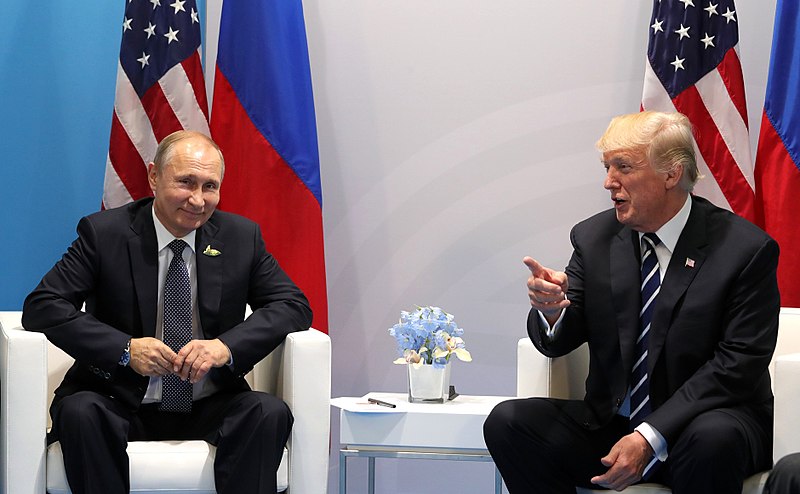
Is Global Power Shifting from Washington to Beijing?
Even as it diminishes, U.S. power will remain preeminent for decades to come
Michael Lumbers, Program Editor: Emerging Security
The reemergence of China as a major economic, military, and diplomatic power is undeniable, as is the erosion of America’s post-Cold War unipolarity, but both phenomena have been exaggerated by some. China faces internal problems – an underdeveloped countryside, income inequality, a flimsy social safety net as the population rapidly ages- that will constrain its development and divert resources needed for a muscular foreign policy. Unlike America, China is cursed by geography, as it’s hemmed in on all sides by powerful regional actors historically wary of the mainland’s influence. The overriding priority of China’s nervous leadership is the maintenance of party rule and social stability among a restless populace that can no longer be swayed by appeals to ideology. Chinese adventurism in the foreseeable future is more likely to result from weakness than strength, as internal instability and popular frustration could drive the government to orchestrate crises with its neighbours to mobilize support at home.
America’s military strength and power projection capacity are unrivaled. It remains the hub of an elaborate alliance system that underwrites global security; when a crisis erupts, Washington rather than Beijing is expected to lead the response. Its inbuilt advantages in demographics, resources, competitiveness, and research and technology are augmented by the imminent attainment of energy independence.
Power isn’t shifting to China, India is the future
Stefan Konrad, Program Editor: Procurement
The United States is clearly in decline – there isn’t much debate about that. Whether it happens within the next few decades or over half a century, America’s global hegemony will eventually be eroded. However, I’m not convinced that China will ever be able to truly take the place of the United States. China’s aging population will pose a massive social and economic challenge, particularly because there is no comprehensive social safety net. China’s rising labour costs relative to nearby economies, such as Vietnam, could also be a problem in the years to come. According to current projections, India’s population will exceed that of China within twenty years.
In addition, India is also competitive in the service sector with a well-educated, English-speaking workforce. As major corporations have outsourced technical support, for instance, India has been a major beneficiary. From a military perspective, India has considerably ramped up its defence spending in recent years. This reflects India’s ambition to counterbalance China’s growing influence in South-East Asia.
Another bipolar world
Jeff Tian, Program Editor: International Business and Economy
Realistically, there is no real chance that there will be a military conflict or another nuclear standoff. Rather, this skirmish will be fought on the economic battlefront. The creation of the Trans-Pacific Partnership, designed specifically to encircle and exclude China economically, is being countered by the development of the new Silk Road along Eurasia. Whereas U.S foreign policy seems to be veering into isolationist territory, China is promoting their 16+1 platform in Eastern Europe, offering to develop infrastructure and further expand their economic footprint.
What is remarkable is that these policies are completely reverse from the history of these two nations. It was an expanding United States that found its global hegemony in the past century while China struggled in virtual isolation until the 1970s. So to answer the question, I think what we’re seeing in modern times is the creation of another bipolar world. This time, the Eastern sphere, spearheaded by an ascendent India and China rather than a crumbling Soviet Union, seems primed to challenge the West for supremacy.
Mutual Cooperation or Destruction?
Trevor Schenk, Program Editor: Canada’s NATO
If challenged, the United States will do whatever is necessary to ensure its survival and preserve its national security. But its strategy of choice towards China should not be that of confrontation. Although it might be a challenge for both countries, it would be beneficial for both to adopt a strategy of cooperation.
In an actual conflict each country has the capability to inflict catastrophic damage on the other, not to mention the potential of each using their nuclear arsenals against one another. At the end of such a conflict both nations would be left battered and exhausted with no real strategic advantages to show for it.
China is also already significantly interconnected with most of its neighbours and most of the Western powers, so a prolonged conflict between the two nations would most likely radically change the makeup of the world economy with unfavourable consequences for all.
For its part China should ensure that it makes an effort to distinguish its intentions of upgrading its military arsenal for defensive capabilities not for offensive ones. On the other hand the U.S. must not see every advance in Chinese military capabilities as a hostile act, for history has showed us the consequences of an unrestricted arms race.
Red Star Rising
Leon Fleddermann, Contributing Writer
The United States is still leading in almost any geopolitical aspect imaginable, but it has been loosing ground continuously in the past few years, particularly under the Obama administration. At the same time China has caught up economically and militarily, in particular a step away from communism to corporatism as its driving economic philosophy has catapulted china from a third world nation, to an economic superpower. China’s military has also undergone rigid reform and modernization and china is dominating in the cyberspace.
China’s main resource is its population, which makes it the largest purchasing power as well as the nation with the largest standing military and there is simply no western competition in this sector. In recent years China has shown expansionist ambitions, in the pacific, Africa and the chinese sea, all evidence of a perception of a weakend US, which struggles with Islamic terrorism in the middle east and Russian expansionism in Europe. All these factors combined and assuming the upward Chinese trend continues alongside a resumption of the downward spiral of US power and a shift in hegemony from Washington to Beijing will be a reality.




